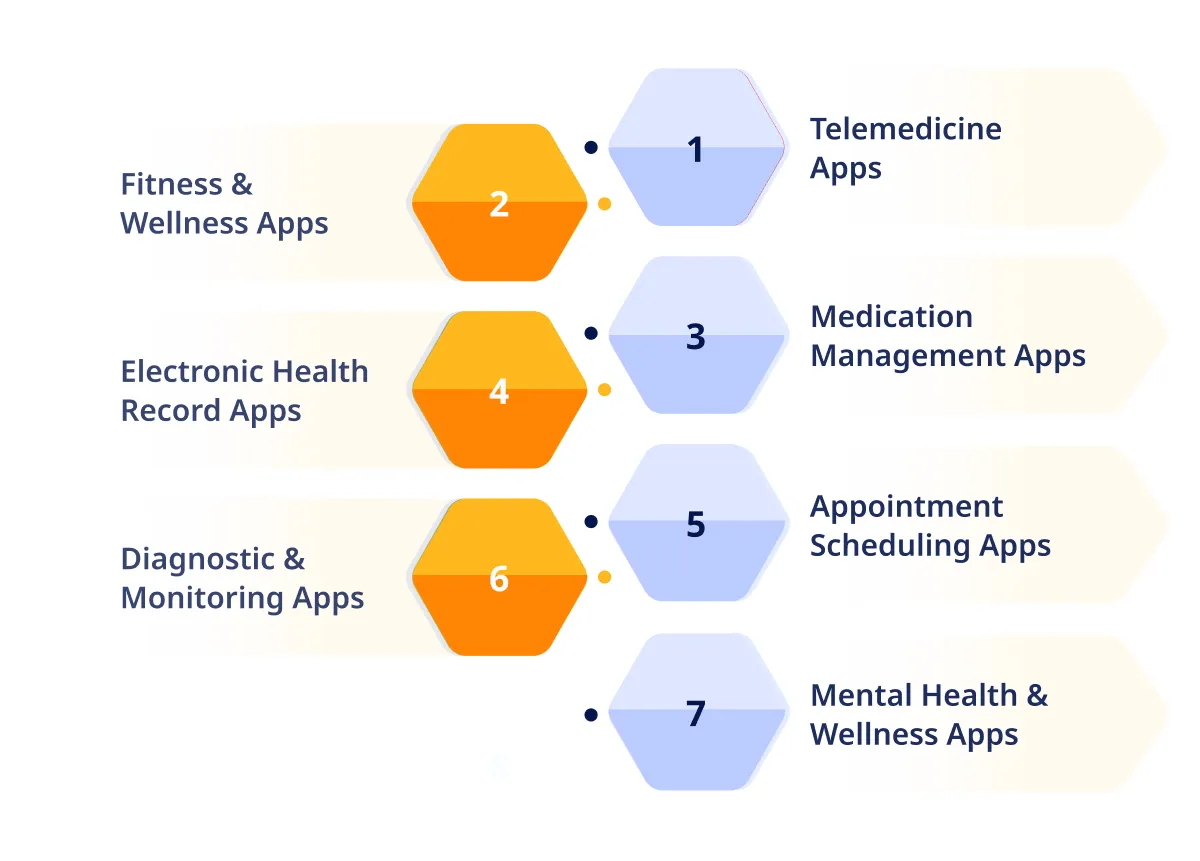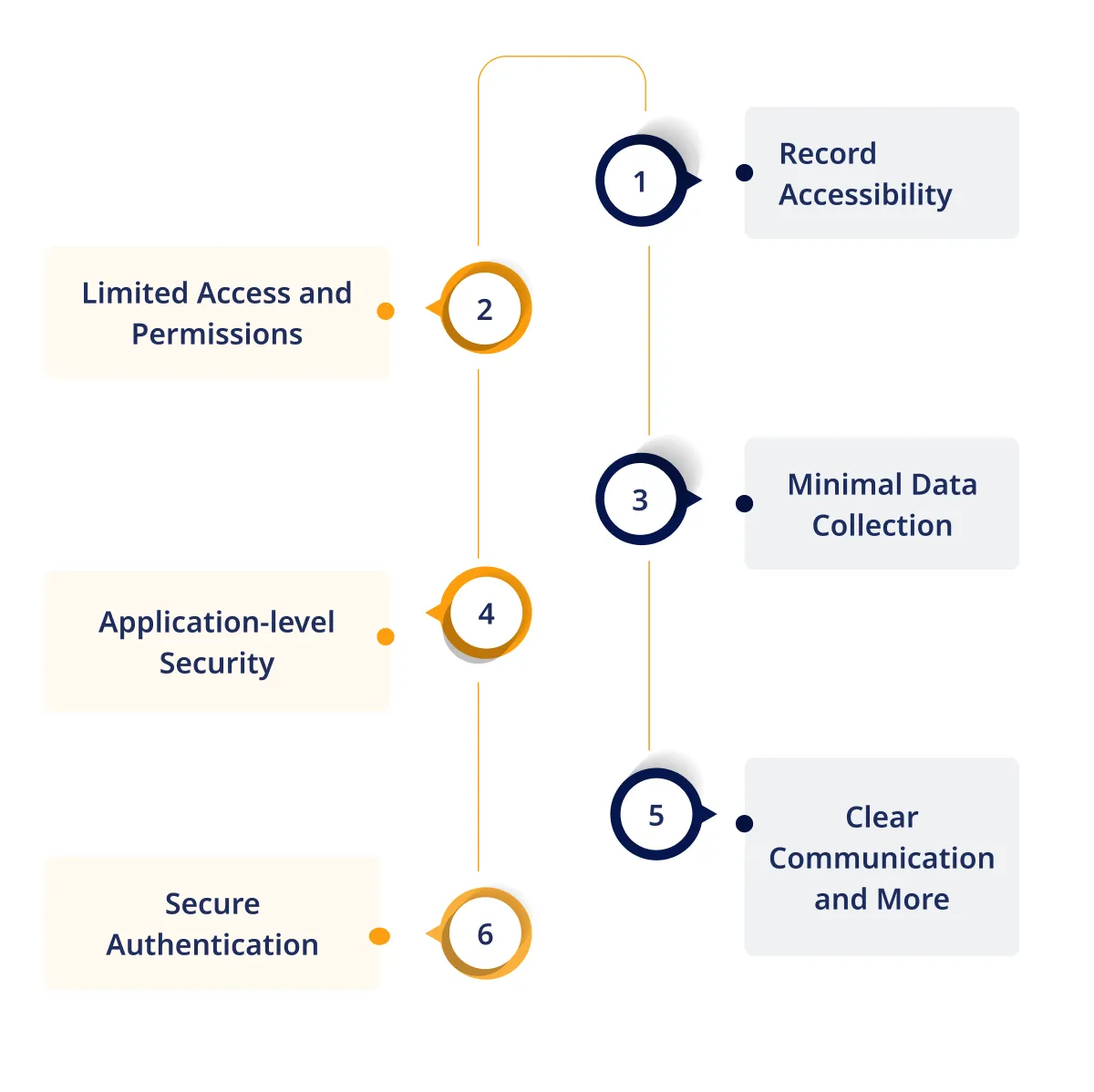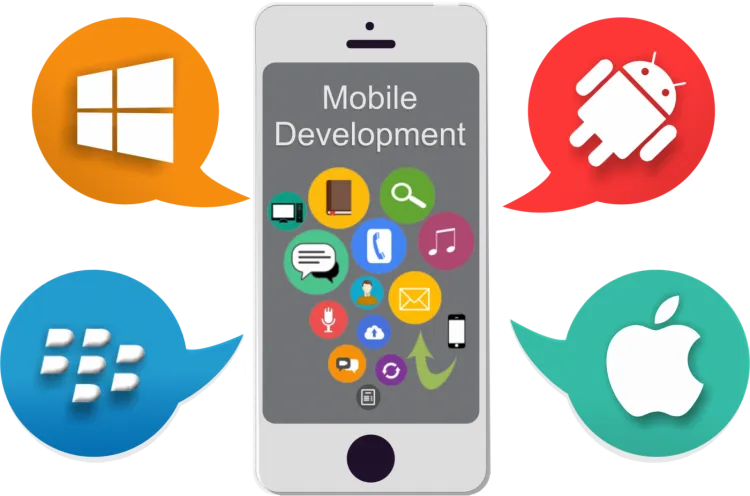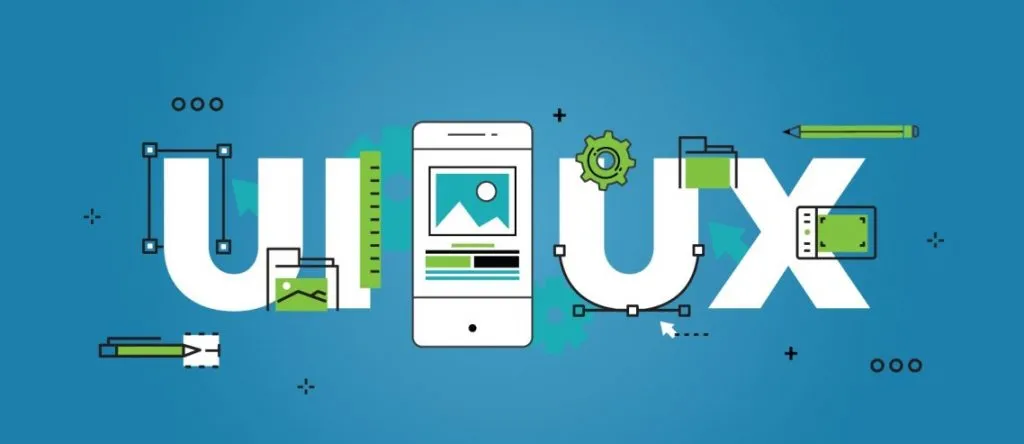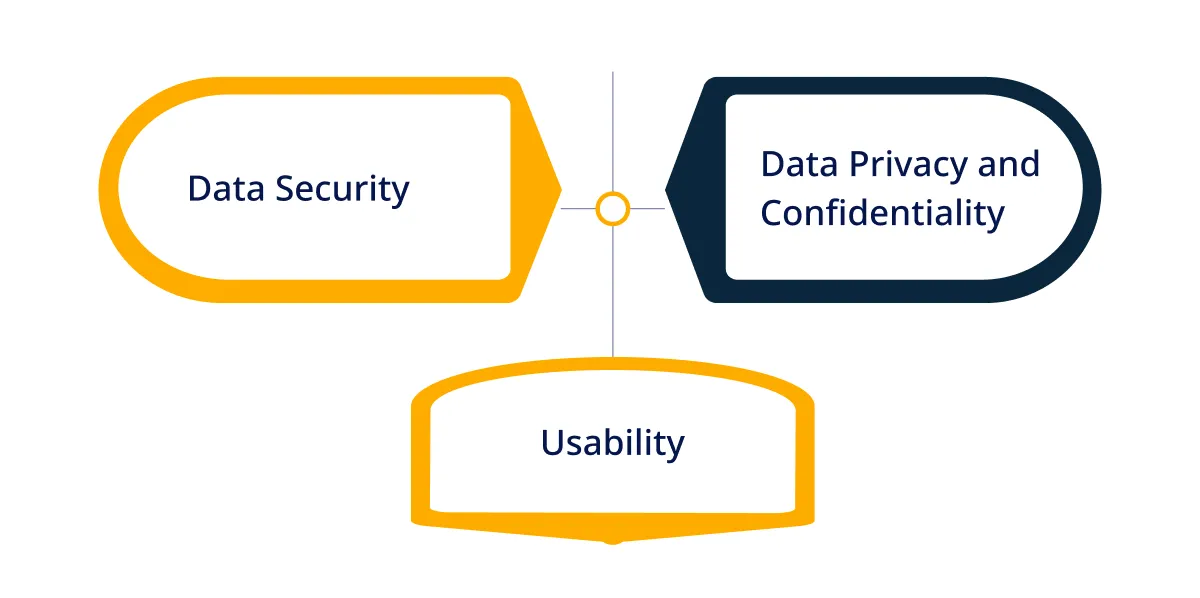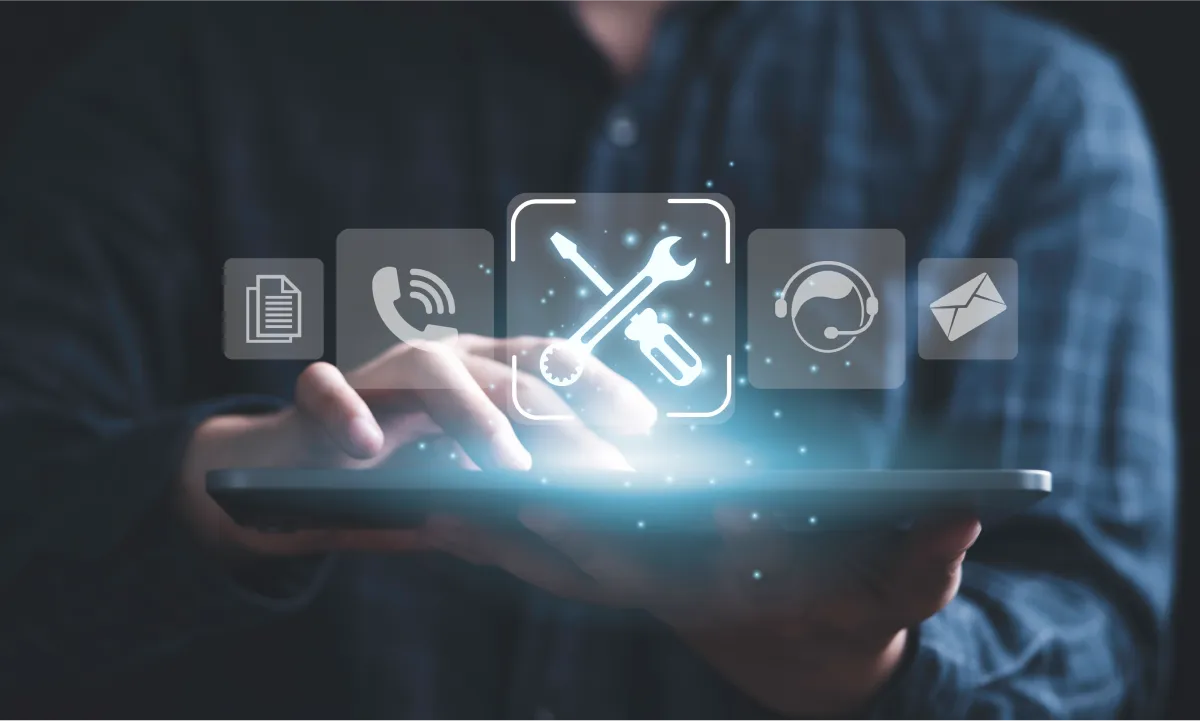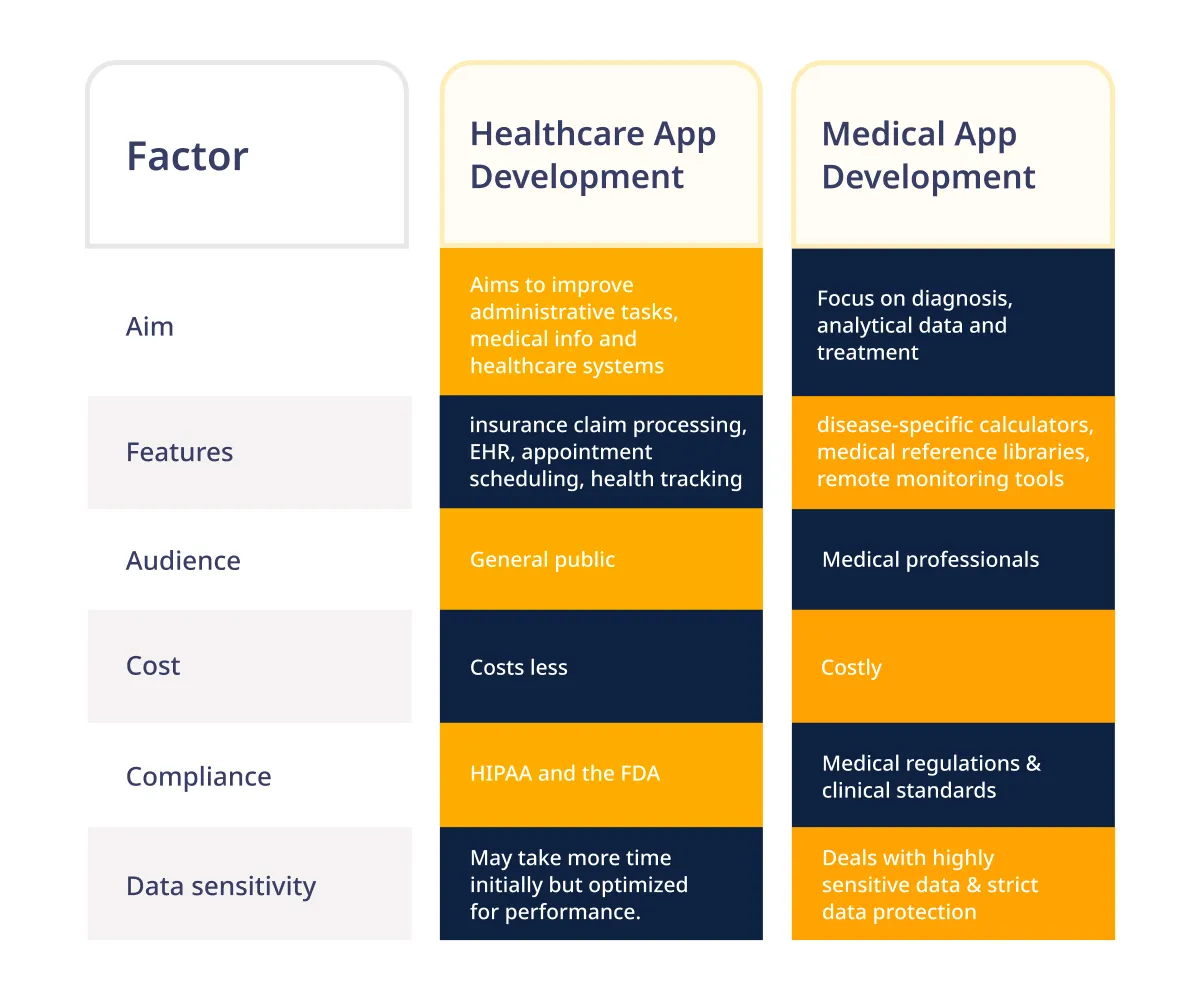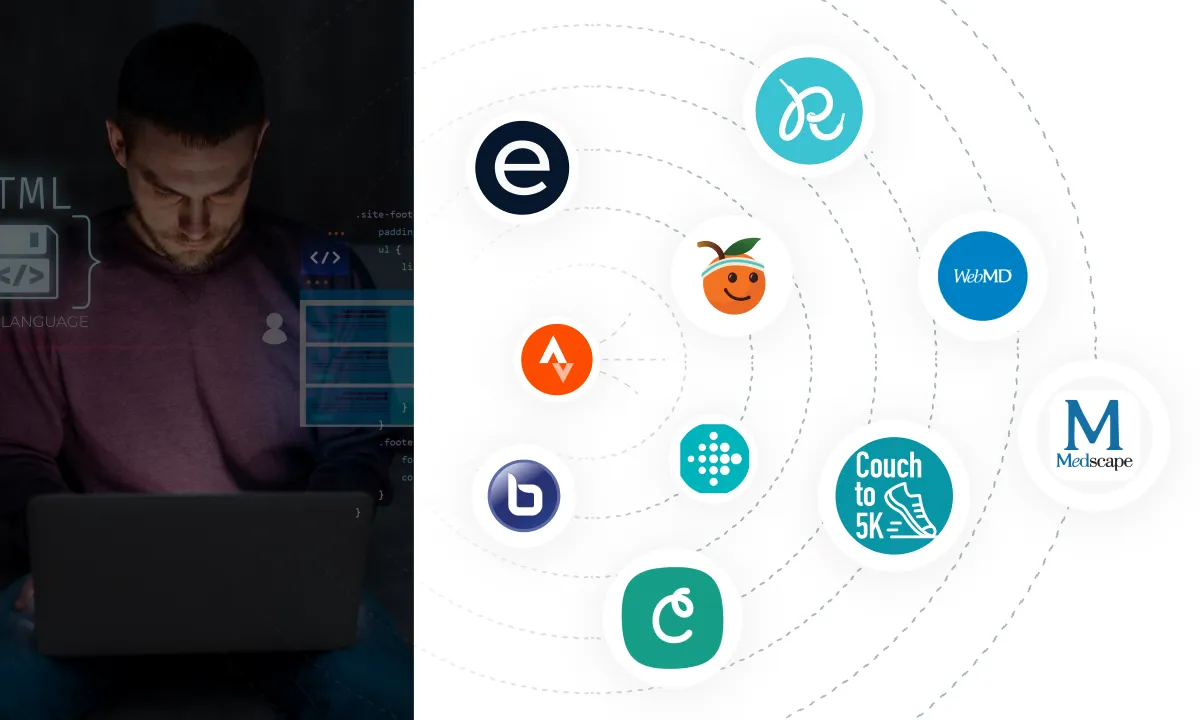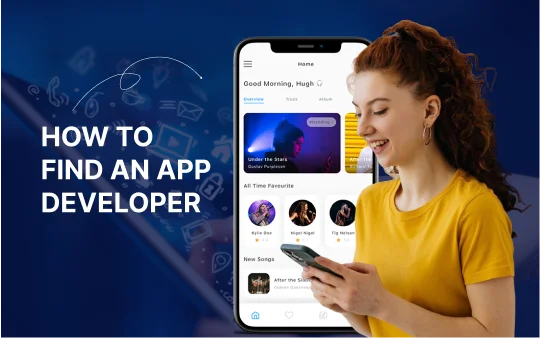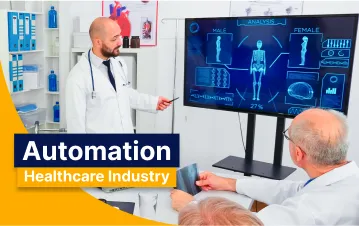Mobile applications have a tremendous adoption rate in the healthcare industry. Many healthcare apps are actively contributing to improving people’s health while enhancing & streamlining medical services.
But, do You Know?
- The global mHealth apps market is predicted to grow by $85.95 billion, showing a growth of 21.1% CAGR by 2027. (Statista)
- There are approximately 52565 healthcare applications on the Google Play Store and about 51370 apps on the Apple App Store, according to Statista.
- Apple, Fitbit, Omada Health, Jawbone Health Hub, Boston Scientific Corporation, Livongo Health, and Abbott Omron Healthcare are the key players in the mHealth Apps Industry.
To meet current market needs and improve ROI, numerous medical institutes, hospitals, and physicians have focused on mobile app development.
The apps built by the healthcare sector not only intensify the well-being of people but also encourage medical experts to reach more and more people.
So, if you want to develop a leading healthcare app, follow each step listed here in this blog post.
Healthcare App Development & its Types
Healthcare app development allows creating software apps specifically designed to address various needs within the healthcare industry. Each type of healthcare app serves a unique purpose and contributes to improving the efficiency, quality, and accessibility for both patients & providers.
These apps leverage technology to
- Enhance communication between healthcare providers & patients
- Improve patient care
- Streamline healthcare processes
- Facilitate access to medical information & services
There are several types of healthcare apps, each serving different purposes and catering to specific aspects of healthcare delivery:
Telemedicine Apps
- Enable remote consultations between patients & healthcare providers through voice calls, messaging & video calls
- Allow for diagnosis, treatment planning, and monitoring of patients without the need for in-person visits
Fitness & Wellness Apps
- Focus on promoting healthy lifestyles by providing features like nutrition guidance, fitness tracking, workout routines, and wellness tips.
- Integrate with wearable devices to monitor heart rate, sleep patterns, physical activity, and more.
Also Read: 7 Brilliant Web App Ideas to Kick Start Your business Post COVID-19 Pandemic
Medication Management Apps
- Help users manage their medications effectively
- Provide track dosage schedules & medication reminders
- Offer information about drug interactions
- Enable users to refill prescriptions conveniently
Electronic Health Record Apps
- Digitize and store patients’ medical records
- Streamline workflows
- Improve information sharing among healthcare professionals
- Enhance patient care coordination
Appointment Scheduling Apps
- Allow patients to schedule appointments with healthcare providers seamlessly
- Send reminders & notifications to reduce no-shows
- Improve clinic efficiency
Diagnostic & Monitoring Apps
- Enable users to monitor specific health parameters, such as BP, blood glucose levels, heart rate
- Provide valuable data for self-management & remote patient monitoring
Mental Health & Wellness Apps
- Offer resources & tools to support mental health/emotional well-being
- Include meditation guides, mood tracking, cognitive behavioral therapy exercises, and virtual counseling services
Also read: Why Investing In Healthcare App Development Is Good?
Step-by-step Guide to Develop a Healthcare App
It is recommended you follow each step to simplify the healthcare app development process. This will help you to build excellent healthcare apps.
But, if you need help with following these steps, you can also avail of healthcare software development services from a recognized medical app development company.
Step 1. Brainstorm & Confirm App Idea
It is essential to know the purpose of developing a mobile application, as this will help you meet a business goal. Along with that, it is also necessary to do market research that will help you analyse the current market trend.
In order to create impactful health apps, it is crucial to collect knowledge about the healthcare market and existing mobile apps and make a list of advanced features. Furthermore, avoid building an application similar to the one already in the market.
The key features of the mHealth app will depend on the type of application you are designing. Below, we have mentioned a few basic features of mHealth apps.
- Record Accessibility
- Limited Access and Permissions
- Minimal Data Collection
- Application-level Security
- Clear Communication and More
- Secure Authentication
Build your healthcare app with expert guidance.
Step 2. Select Omnichannel For Healthcare Application
Once you have done market research and selected the app features, choose the platform for your app.
Android, iOS, or both??
You should focus on your business requirements and resources to determine the platform. If you want to launch an application only on the Google Play Store, you can choose the Android platform to develop an app, or if you’re going to launch the app on the app store, you can select the iOS platform.
Well, if you want to run the app on all omnichannel (Android and iOS) or if your audience is spread across both iOS and Android, incline to hybrid mobile app development.
Native iOS and Android applications offer excellent user experience (UX), but in this case, healthcare application development needs a lot of time and resources.
In the healthcare sector, other startups, SMEs, and larger enterprises usually prefer Hybrid app frameworks (React Native, Ionic, and Flutter) to build the application.
These frameworks stimulate the app development process by enabling healthcare app developers to extend a single codebase simultaneously on both platforms (iOS and Android).
Also read: IoT In Healthcare: Benefits, Challenges And Application
Step 3. Build an MVP Healthcare Mobile App
Most businesses dream of developing the perfect business app. However, following an MVP-first approach can contribute more to your app’s victory.
A minimum viable product (MVP) is the primary app version that has all the main features and is void of additional features that can be consolidated later during the future advancement of the app.
Apps like Facebook, Uber, and Instagram commenced as MVPs; following their footsteps will surely help you start better. It will also offer a chance to add features to your application as per the users’ feedback.
To make your app popular, first, bring the simplest version of your healthcare app to the market and then later introduce advanced features in the app; this will help you build a full-fledged mobile app.
If in case you are confused about framing the MVP approach for your app, then you can hire mobile app developers, as those will help you choose and build a better approach for your business app.
Also Read: Guide to Android App Development: Tips, Tricks, and Strategies for Building Successful Apps
Step 4. Design & Develop the App for Excellent User Experience
The user experience can make healthcare mobile apps popular as it impacts on its usability as well as user engagement. Apps that offer a superb user experience have more possibilities of attracting users. So, pay more attention to designing the UI/UX of your healthcare app as it not only requires functioning well but also requires looking well.
Adopting an iterative path and developing an app in different modules allows the medical app developers to make alterations without affecting the all over functionality of an app. Well, integrating the app with frameworks and third-party APIs fastens the healthcare app development process by reducing the requirement for reinventing the wheel.
App integrations with EHRs and EMRs are crucial to driving healthcare interoperability. Including innovations on the Internet of Medical Things (IoMT), unites the app with fitness wearables and also allows gathering and storing the data. Advanced healthcare applications can also use AI algorithms to manage the data to get insightful and actionable results.
Enhance efficiency and engagement in healthcare.
Step 5. Test Your Application
Due to the popularity of mCommerce and virtual reality (VR) hardware, Virtual Commerce is becoming popular and is likely to completely replace e-commerce.
Virtual Commerce is only possible with Artificial Intelligence (AI), the Internet of things (IoT), and blockchain with high speed of networking. By correlating to VR devices, V-commerce resembles to be developing as part of mCommerce.
The healthcare mobile application quality, security, and accuracy are quite high. So, the testing phase of the app should be completely bugs and errors free. You should check the below-mentioned factors while testing the healthcare application.
- Data Security – Healthcare app data is more inclined to hacks, and that’s why recognizing and reducing all the areas of vulnerability in the testing phase is important. Encrypting data through a transport layer security will promote data validation in your healthcare app.
- Data Privacy and Confidentiality – Set up stern authorization and access control measures within your app to make sure information is collected by its proposed recipients only.
- Usability— Usability queries in your app can succeed in clinical problems affecting the results of the patients’ health. Even a small problem found in the app will be a turn off for the users. So, accurate testing of the app’s usability will enhance its overall appearance.
The top-notch healthcare app development company developers know all essential factors related to testing, and that’s why I will recommend you hire mobile app developers. This will finally support completing the mobile app testing efficiently.
Also read: Healthcare’s Most Intelligent Software: Simplify Process With Different Healthcare App Solutions
Step 6. Don’t Miss Data Security & Launching of App
mHealth apps that collect personally-identifying data must meet the regulatory agreements like HIPAA. These agreements apply to both the hidden entities and their business allies. Besides, the consequences of non-compliance can result in heavy fines.
So, if you hire mobile app developers then once tell them to go through the HIPAA compliance checklist before building and launching the app. Once examining the data security launch the application on Google Play Store or app store. Well, while launching a mobile app on Google play or app store, make sure that your app is meeting all launching criteria.
Step 7. Maintenance & Support
The healthcare app development journey doesn’t end at the launch of the application but somewhat prolongs beyond that. Maintenance, support, and scalability are also the other crucial determinants that you should analyse while planning for app development.
These factors are not only about resolving the bugs but also transforming the application to enhance its appearance in the market. Healthcare App maintenance and improvement will also help you to meet the app with the newest industry trends and stay competitive in the market.
Also Read: 10 Mistakes to Avoid While Hiring Mobile App Developers
Healthcare App Development VS Medical App Development: A Comprehensive Comparison
Healthcare app development provides health solutions like nutrition info, physical activity tracking, etc., using smartphones or any gadget.
On the other hand, medical app development provide medical solutions to ease work of doctors in medical industry. It involves patient monitoring, telemedicine, disease management.
Both medical apps and healthcare apps serve the same purpose of human well-being. However, there is a small difference in some areas, viz., healthcare app development cost, specific goals, target audiences, etc.
Let’s have a look at the following tabular comparison:
Partner with us for seamless digital solutions.
Renowned Healthcare Mobile Apps
Below, you can view the most popular Healthcare mobile apps. These apps include top-level features and functionalities, which is why they became popular worldwide.
- WebMD
- Couch-to-5K
- Fooducate
- RunKeeper
- Strava Cycling
- Fitbit
- Epocrates Plus
- iBlueButton
- Curofy
- Medscape
Also Read – Healthcare App Ideas: 20+ Ideas For Healthcare Professionals
Technology Innovation in Healthcare Applications
Have you ever thought about which technology will bring innovation in modern healthcare application development?
Yes, you heard it right.
There are some technologies that attract the most funding to add next-gen features to your medical application. It would surely increase user adoption rate and user experience.
Here is the list of those technologies:
1) Blockchain
It works like a digital ledger and allows secure transfer of digital information between two parties. Modern app developers use this technology to store medical records, information sharing among patients and doctors.
2) AI/ML
This technology is revolutionizing the healthcare industry. It helps in detecting major health problems and analyze vast amounts of health data. Its applications include medical imaging, prescriptions, records etc.
3) IoT
This technology allows communication and data sharing between devices. Using this, a healthcare app can tell you the temperature of the refrigerator, how much milk to order and how much milk is required as per the no. of family members.
4) Real-time Monitoring
This is one of the amazing features of healthcare app development, and it provides real-time health monitoring. You can view the vital stats of the patients as per the pattern you set, i.e.,
Seven days a week or 24 hours a day.
Deliver exceptional experiences to your patients.
Wrapping Up
These are the crucial aspects that you must know to build a futuristic healthcare app. Following these steps from this “how to develop a healthcare app” guide will going to help you to create a leading healthcare app that will benefit you to level up your business.
In order to make a unique presence in the healthcare market, you can also hire mobile app developers from the top-notch healthcare app development company (ValueCoders); this will help you shorten the healthcare app development process and launch the app on the app store within less time frame.
ValueCoders is one of the top-rated IT outsourcing companies offering healthcare software development services since 2004.
The company has successfully delivered 4200+ projects globally, and the number is still increasing each month. The Healthcare App Developers of this organization minimum have 4+ years of experience.

